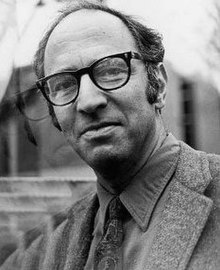I recently attended a Catholic high school graduation. It
wasn’t out of personal choice, but rather I was on the newspaper clock. One of
the two communities I cover as editor of two newspapers has a Catholic as well
as a public high school, and yes, it’s rare for a Catholic high school to be
attached to a single parish and in a small town unless it’s VERY Catholic.
Some regular readers here know my background as a
Lutheran-turned-secularist, who started that turning halfway through seminary,
and comes from a dyed-in-the-wool Lutheran family, including ministers and
teachers.
And, that’s the setting for the rest of the story.
The graduation ceremony was at the local church, and was
part of not just a worship service, but a regular Mass.
And … my skin almost crawled.
I still can't, don’t, and won’t accept the
"re-sacrifice" of the Mass itself from a Lutheran perspective, let alone
a secularist one. My Lutheran background understands why Luther himself, and other
Protestant Reformers both Lutheran and Calvinist, recoiled at this.
If Jesus were the once and for all sacrifice, being fully
divine as well as fully human, on a vicarious atonement theory of his death,
then he was sacrificed once. Period. That’s the whole thrust of John’s version
of the Passion, setting Passover a day later than the Synoptics and having
Jesus as the perfect replacement for the Passover lambs.
I’ve attended a couple of Masses before, but they were for
comparative religion classes or other things, and all Saturday night quickies
(the priest wasn’t even vested in a couple of cases, just wearing his "dog collar" [as an ex-Lutheran, not ex-Baptist, I can say that]) and I got out. And wasn’t reflective on what was really happening at ones I had to attend for class reasons. (Ditto on some of the more interesting non-Lutheran Protestant churches I attended.)
There were other offsetting things that I heard.
One was the reference to the "sacrifice" by
believers before the Eucharist itself. It makes me understand more clearly the
Catholic emphasis on giving something up for Lent, which most Protestants, let
alone the Faitheist groupies of Original Faitheist Chris Stedman just don’t
get. If they did, they wouldn’t dive into their own version of giving stuff up. (Faitheist the book and the cult of Chris Stedman are so shoddy I blogged about it the book, him and it the cult not once but twice, the first time in fair detail, the second time massively so.)
Per James Carroll's new longform in The Atlantic, well worth a read, primarily about clericalism in Catholicism, the whole guilt-laden background is what seems to drive the focus on ongoing sacrifice. And, as a good ex-Lutheran, I know that guilt-laden background weighed quite heavily on Martin Luther.
Per James Carroll's new longform in The Atlantic, well worth a read, primarily about clericalism in Catholicism, the whole guilt-laden background is what seems to drive the focus on ongoing sacrifice. And, as a good ex-Lutheran, I know that guilt-laden background weighed quite heavily on Martin Luther.
I also found it interesting that the Mass — the actual Mass,
not the larger service — edits the biblical language. The priest began the
consecration and transubstantiation (have to add that word) like this:
"On the same night he was betrayed when he willingly
entered his sacrifice ..." The Bible says no such thing at the time, of
course, about his willingness. And, Paul wrote 1 Corinthians before any of the Gospels, let alone the Jesus of piety of Luke.
AND, I've said before, that παραδίδωμι in Paul's Greek can have a middle/intransitive as well as a passive meaning. In which case, in English, Paul says:
"On the same night he was arrested, he took bread ..." There was no betrayal, contra later Christian peshers mining Psalm 119 and other spots for a dark betrayal by Judas (which has its flip side in Gnostic thought with Judas Thomas, and Thomas being the Aramaic of Didymus, which is just "twin" in English. Here, Jesus and Judas are part of a cosmic Gnostic-Jungian play.) I have also blogged about THAT not just once but twice, both times in the context of larger issues of biblical criticism and in re Jesus mythicism as well.
Next?
"The new and eternal covenant."
It’s certainly not called that, either. That said,
Christians believe it is.
THAT said, if you believe that, you’ve undermined your own
idea of the Mass as a re-sacrifice, haven’t you? You've also raised questions of the intertwining of god's foreknowledge, predestination, omnipotence, etc., as in ... to be snarky ... "Couldn't got get that covenant right the first time?"
On the bit more cynical side, or knee-jerk crude humor side, Pavlovian thoughts popped into my head when I heard that bell. Maybe there's a serious angle to that, too.
==
I will say, and I don't know if it was more the particular priest (raised Baptist himself) or more percolation years for post-Vatican II emphasis on preaching in Catholic worship, but the father wasn't bad on his graduation homily.
On the bit more cynical side, or knee-jerk crude humor side, Pavlovian thoughts popped into my head when I heard that bell. Maybe there's a serious angle to that, too.
==
I will say, and I don't know if it was more the particular priest (raised Baptist himself) or more percolation years for post-Vatican II emphasis on preaching in Catholic worship, but the father wasn't bad on his graduation homily.


